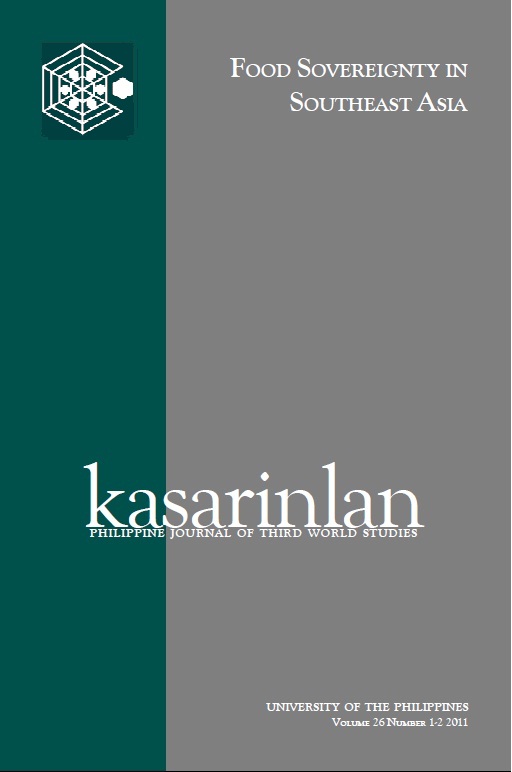Banking on the Rural Poor?: Critical Insights and Policy Questions on Foreign Aid and Agrarian Reform in the Philippines
Abstract
Foreign aid for agrarian reform funding—for example, Canadian aid—has claimed to address rural poverty, agricultural stagnation, and food security. This paper examines agrarian-related overseas development assistance (ODA) to the Philippines to reveal that such aid has had its ebb and flow—one that follows the internal policies and priorities of development agencies, and the development policies, strategies, and sociopolitical and economic context of its borrowing member countries. Such type of ODA is also contingent on other factors such as global socioeconomic and political environment; global trends in development financing; and pressures from powerful countries, domestic elites, social movements and civil society, or specific political conjuncture. As a result, short-time considerations override a long-term approach that would address rural poverty and land inequality.
Published
2012-12-12
How to Cite
MANAHAN, Mary Ann.
Banking on the Rural Poor?: Critical Insights and Policy Questions on Foreign Aid and Agrarian Reform in the Philippines.
Kasarinlan: Philippine Journal of Third World Studies, [S.l.], v. 26, n. 1-2, p. 312-323, dec. 2012.
ISSN 2012-080X.
Available at: <https://journals.upd.edu.ph/index.php/kasarinlan/article/view/3502>. Date accessed: 30 aug. 2025.
Section
Research Notes
Keywords
international assistance; land reform; CARP; rural development
By submitting a manuscript, the authors agree that the exclusive rights to reproduce and distribute the article have been given to the Third World Studies Center.



